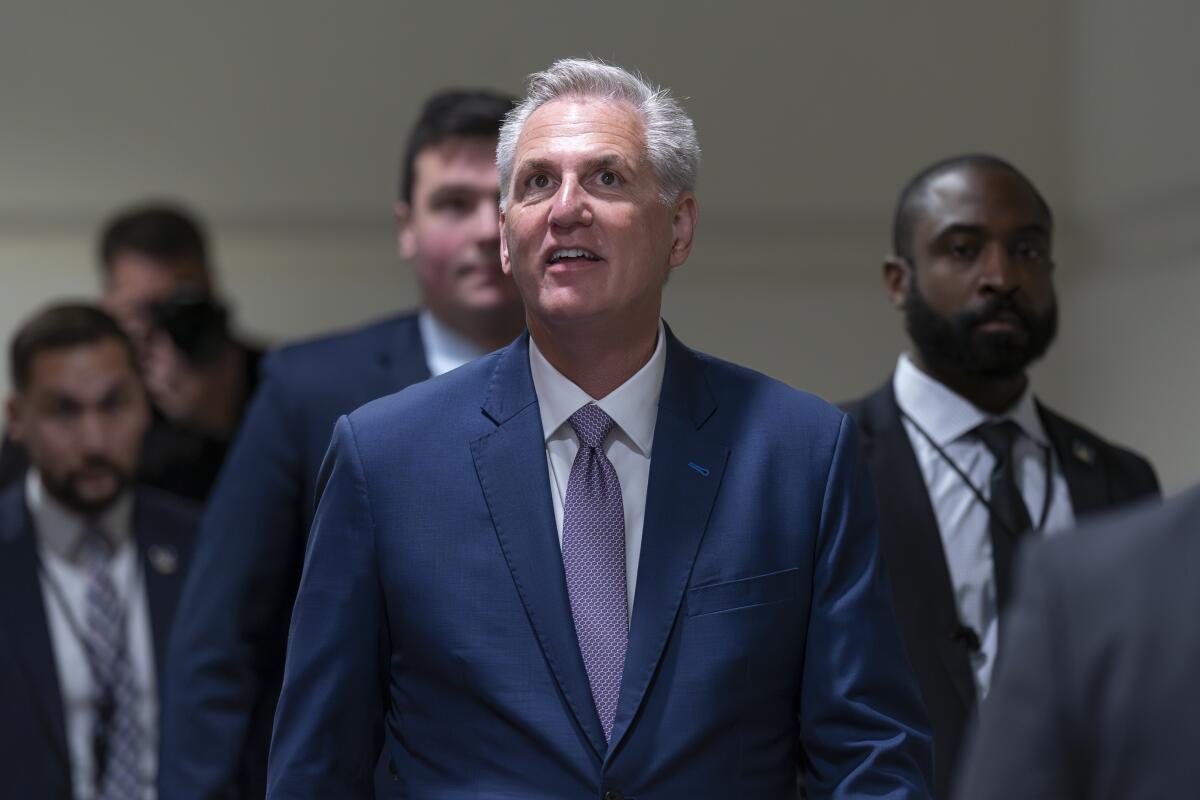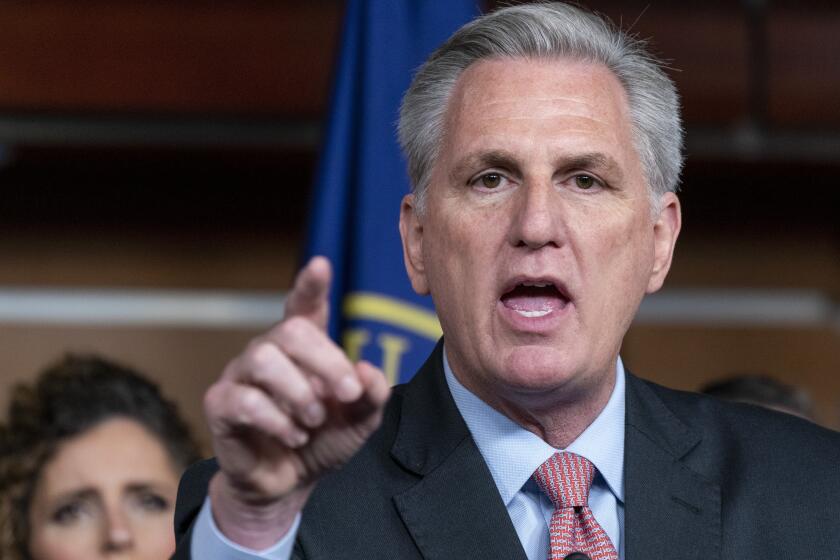Editorial: House Republicans want to balance the budget on the backs of America’s kids

- Share via
House Republicans narrowly passed a bill this week that would increase the federal government’s debt ceiling in exchange for $4.8 trillion in spending cuts over 10 years that show what the GOP cares about.
It’s not our nation’s youth. Republicans propose slashing funding for critical education programming that would affect low-income students, students with disabilities and students who need mental health support. These plans would also shrink the Pell Grant program, which helps low-income students attend college. In addition, the bill would block President Biden’s student debt relief plan before the Supreme Court has a chance to rule on its legality this year. Republicans are proposing these cuts at a time when students are still recovering from pandemic-induced learning setbacks and suffering high rates of mental health difficulties.
Thankfully, this bill is not likely to pass the Democrat-controlled Senate, and Biden has promised to veto it if it does. The Limit, Save, Grow Act of 2023, which passed on a 217-215 vote, would also trim funding to programs for veterans, enact work requirements for government aid recipients starting in 2024, rescind funding for 87,000 Internal Revenue Service agents and end tax credits for companies investing in green energy.
Republicans are holding the economy hostage with debt limit fight. Biden should be willing to work with House GOP, but not at the expense of the nation’s economic health.
In California, the bill would remove $463 million in funding for schools that serve more than 4 million low-income children, reducing its funding to its lowest level in 10 years, according to the U.S. Department of Education. The bill would also cut $119 million in mental health support for students, reduce programming for students with disabilities, and make college more expensive for Pell Grant recipients by reducing the amount of gift aid, in addition to reducing the number of grant recipients by more than 9,500 students in the state.
The bottom line is that these proposals would hit the most vulnerable students, cutting programs that can help young people do better in school and thrive. In contrast, the Department of Education says that Biden’s $6.9-trillion budget proposal would add funding to low-income schools and expand teacher training programs to address the shortage of teachers, which is affecting schools nationwide.
Education funding proposals from either party should be scrutinized to ensure that students’ needs are met and that young people are prepared for the workforce without wasteful spending.
Whether the next speaker is the oft-humiliated McCarthy or someone else, Republican control of the House has gotten off to a disastrous start, and things are likely to get worse.
But the cuts proposed by the GOP are hardly carefully considered trims as part of a measured analysis of programs. The 320-page plan spearheaded by House Speaker Kevin McCarthy (R-Bakersfield) simply calls for slashing 22% from funding without considering what students need. Balancing a budget this way is akin to a bull in a china shop breaking things. Republicans had no qualms in the past raising the debt ceiling while supporting programs that benefit the wealthy, such as Trump-era tax cuts.
Congress needs to grapple with balancing the budget, but lawmakers shouldn’t sacrifice our youngest, most vulnerable to do so.
More to Read
A cure for the common opinion
Get thought-provoking perspectives with our weekly newsletter.
You may occasionally receive promotional content from the Los Angeles Times.












